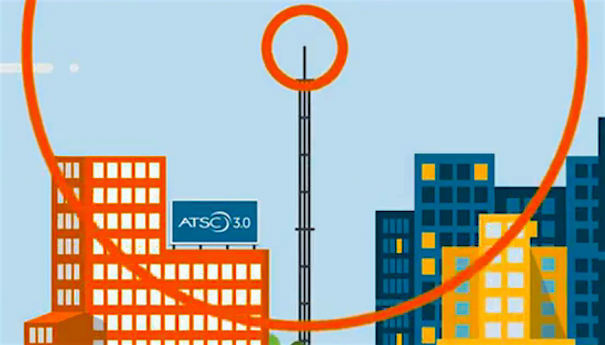NextGen TV: Auton, Anywave Launch Broadcast Internet Trial in Bend, Oregon
The real-world test lab and trial for broadcast internet started in July using WatchTV’s LPTV stations that have been upgraded to ATSC 3.0

BEND, Ore.—Auton, Inc.and Anywave Communications Technologies have announced the launch in Bend Oregon of what they are calling the most comprehensive test, demonstration, and market trial to date of a broadcast internet franchise.
The innovative, new service provides a one-to-all extension to the one-to-one unicast architecture of the legacy internet. The test lab initiated trials in July and is integrating new vendors and service providers throughout the remainder of 2022, the companies said.
As part of the effort, Auton, a service provider developing a nationwide Broadcast Internet network fabric, and its broadcasting partner WatchTV have developed the Oregon test network: a collection of ATSC 3.0-enabled broadcast stations to showcase the powerful capabilities of NextGenTV for both fixed and mobile applications.
The network is currently unencumbered with commercial traffic and offers a "green field" for testing and evaluating the multi-dimensional parameters of ATSC 3.0.
“Currently the limited availability of such assets is impeding the full-scale development of the FCC's newly created Broadcast Internet Service,” explained Bob Foster, CEO of Auton. “Technology and product vendors, service and content providers, and tower leasing companies – all stakeholders in the Broadcast Internet – stand to benefit and are encouraged to join Auton in supporting the program.”
The WatchTV-hosted ATSC 3.0 network includes two Anywave supplied LPTV transmission sites. One is located on Awbrey Butte directly above Bend proper. The second site is located about 30 miles north, on Grizzley Butte near Redmond, Oregon.
The protected contours of both stations overlap about 60%, which provides a perfect environment to demonstrate the unique capabilities of the innovative Anywave "Self-Synchronizing" gap fillers to enhance both capacity and performance of the ATSC 3.0 network.
The professional video industry's #1 source for news, trends and product and tech information. Sign up below.
The Broadcast Internet enhancement to live and on-demand internet streaming video services solves the latency challenges, which are one of the most pressing issues facing the distribution of live events over the legacy internet. Broadcast internet will dramatically reduce the complexity and cost of internet video streaming and significantly improve the user experience, while simultaneously reducing the cost of delivery by orders of magnitude.
"We are very excited to work with Auton and its strategic partners on this groundbreaking ATSC 3.0 Broadcast Internet project," shared David Neff, general manager of Anywave. "This deployment is validation of the new opportunities enabled by recent FCC rulings on Broadcast Internet and Distributed Transmission Systems (DTS). Anywave has developed the most flexible ‘Self-Synchronizing’ DTS solutions to augment our advanced ATSC 3.0 broadcast transmitters and ensure high-quality uniform performance throughout the licensed TV service area.”
The Bend market was chosen for its multiple demographic and geographic environments, with multiple incumbent internet service providers (ISPs). These characteristics facilitate the delivery of the unique benefits of Broadcast Internet services for the public and the existing service providers, content owners and distributors all seeking a more direct engagement with their audiences.
“The secure distribution of video and broadband data files to receivers and edge storage will transform the internet ecosystem to a new level of improved quality of service,” explained Vern Fotheringham, the chairman of Auton. “Broadcast internet is a complement to unicast ISPs but does not rely on them. Thus, there is no contention, bandwidth sharing, or session-oriented constraints typical of legacy ISP access networks, and their common infirmities including buffering, freezing and a poor user experience. Broadcast internet, in addition to its live IP streaming advantages, also enables the prepositioning of high-demand and popular on-demand video content available to stream instantly and served in the highest resolution directly from local edge cache storage in consumer's homes, vehicles and ultimately in their pockets.”
More information about participating in the ATSC 3.0 comprehensive test lab is available by emailing Robert Foster at rf@auton.co.
George Winslow is the senior content producer for TV Tech. He has written about the television, media and technology industries for nearly 30 years for such publications as Broadcasting & Cable, Multichannel News and TV Tech. Over the years, he has edited a number of magazines, including Multichannel News International and World Screen, and moderated panels at such major industry events as NAB and MIP TV. He has published two books and dozens of encyclopedia articles on such subjects as the media, New York City history and economics.

